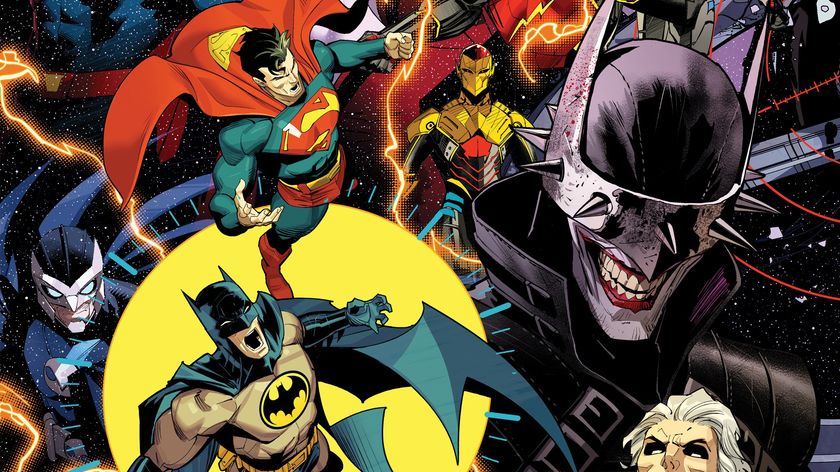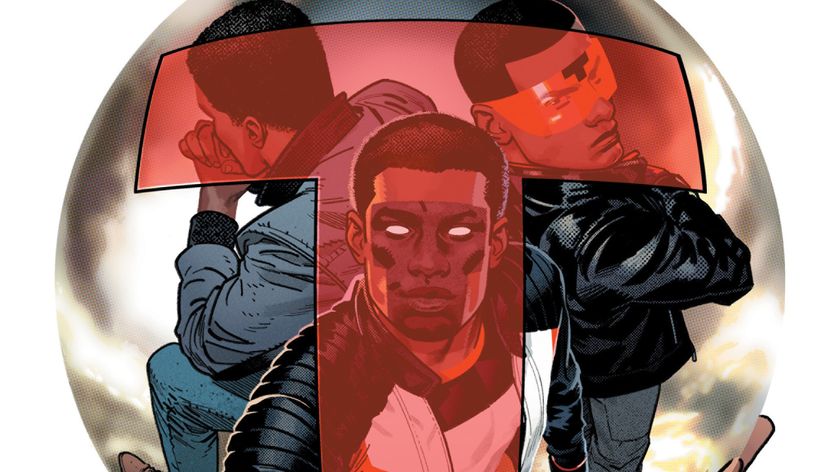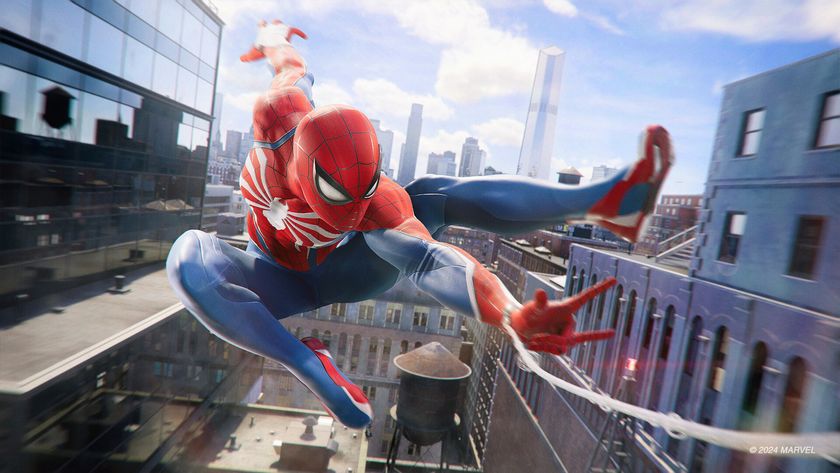Dan Jurgens on how The Death of Superman has "withstood that test of time"
The creator best known for The Death of Superman explains its impact 30 years later and argues the creators never got the critical due they had coming
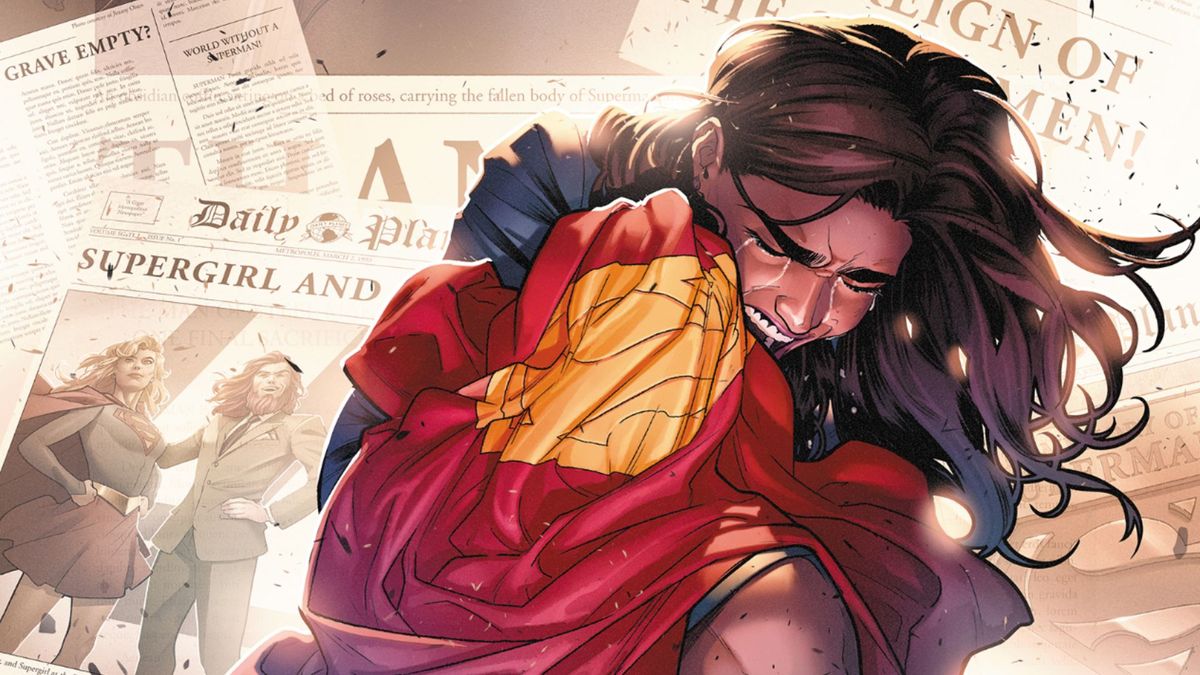
It's 1992, and the world of comics is on fire. Still reeling from 1991's record-setting X-Men relaunch with Jim Lee, Todd McFarlane is about to introduce the world to Spawn, Valiant Comics is set to launch a line of new, gritty heroes, and the "speculator market" has throngs of people clamoring for first issues, hoping they'd one day be able to turn them into a fortune. As if all that wasn't wild enough, a couple of DC Comics creatives were soon going to announce a plan that would make even the biggest of comic ideas look small.
They were going to kill Superman.
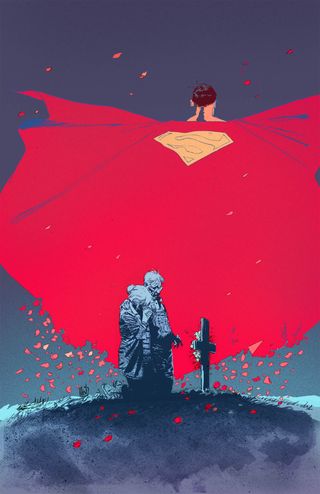
At that time, Superman fans were feasting on a consistent diet of their favorite hero. The Man of Steel led not one, but four titles, crafted by people who were already comic book legends. Folks like Louise Simonson, Jerry Ordway, and Roger Stern worked on the books, all playing some role in the upcoming plan to have DC's flagship character die.
But decades later, it is inker/writer Dan Jurgens who is most closely associated with the Death of Superman, the event having taken him from relatively unknown to comic superstardom. With the thirtieth anniversary milestone of the Death of Superman on the horizon, Newsarama sat down with Jurgens to hear the story of its creation from his perspective. To get a first-hand account of the plan to kill Superman, plus Jurgen's tease of the recently-announced Death of Superman 30th Anniversary Special, read on.
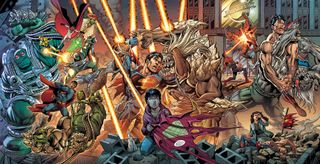
Grant DeArmitt for Newsarama: Dan, starting off, can you define a Superman Summit for me?
Dan Jurgens: A Superman Summit was something [the creative team] would have a couple of times a year, where the writers and artists would meet. And when I say artists, I mean inkers and colorists as well would all get together somewhere, usually in a conference room, and plan out the coming year or so of Superman stories. We might plan out twelve to fifteen months in advance, but it was really the first eight or nine months that would be really really tight.
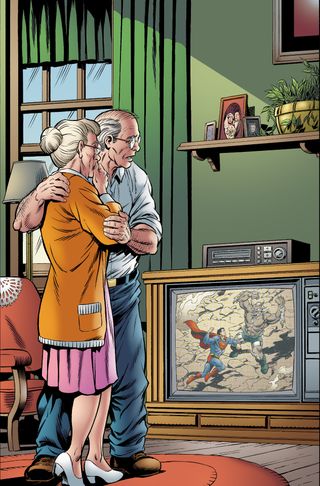
Nrama: And what was the general tone of those meetings?
Comic deals, prizes and latest news
Get the best comic news, insights, opinions, analysis and more!
Jurgens: The tone was always positive, we always got along. It was something that grew organically.
It was [editor] Mike Carlin that started the system; this was after John Byrne left, who had been doing all the Superman books. [Carlin] wanted Superman and Action Comics, and at that time, Adventures of Superman, to be connected as fairly tight books and tell a consistent story. To be locked into each other, not necessarily an ongoing continuity, but certainly not any continuity that was in conflict.
It started with two books a month, then went to three books a month, and by the time we got around to the point where it was including Superman: Man of Steel, we really had developed a system for how to tell ongoing stories. In some cases, those were individual Superman stories, but we would often have secondary characters, whose adventures might link up from month to month. So it felt like an ongoing comic.
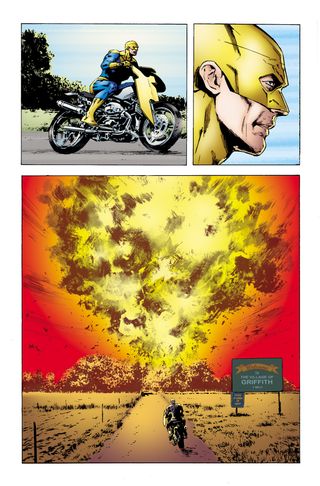
Nrama: What are the benefits of storytelling like that? What do you call that style?
Jurgens: One of the phrases that has been ascribed to that time is the "Triangle Era." Mike came up with the idea that Action Comics would have an individual issue number, Superman would have an individual number, and so would Adventures of Superman. But, we'd put a little triangle on the side, and that would link the three of those titles. So readers always knew in what order to read individual issues. Again, we built that system so that we could have the feel of an ongoing saga for Superman.
At the same time, there was plenty of room for individual creative teams to tell their own story regarding Superman. You just had to make sure you got him, by the end of your comic issue, back to where he was. So he could go have another individual adventure in Action Comics or Adventures of Superman.
Nrama: That's interesting you say that because the Death of Superman is the opposite of getting him back to where he was. Can you describe the Superman Summit where Death of Superman got pitched? Or was there one? Was there an actual, specific Superman Summit when someone said, 'Let's make this a reality?'
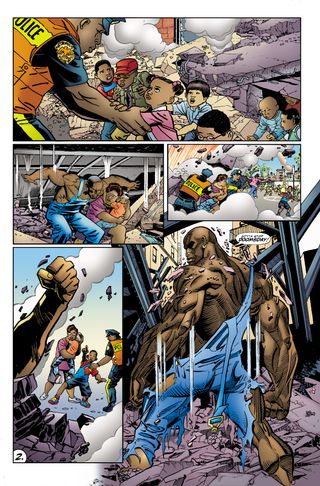
Jurgens: Oh yes, very much so. It was the first week of November in 1991. The idea came up a couple of times earlier as a classic Superman story that maybe we should hit on sometime, that there may be something we could do with it, and we just never flushed it out.
I went into this particular meeting with a yellow legal pad that had two things written on it. One was "Monster crashes Metropolis," and the other was, "Death of Superman." I never had any concept that those two things would be connected. Then at the meeting… these things always start slow, you know? People have ideas you don't necessarily warm up to as you're looking for direction. Jerry [Ordway] almost joked, well maybe we should just do Death of Superman because we weren't coming up with anything else. And we started to flush it out. We started to talk about it more.
Then I said something about wanting to do a "Monster crashing Metropolis." I just wanted to do a big fight, because, at that point, Superman did not have enough physical foes that he could confront. Luthor was a guy in a business suit. Brainiac had been kind of a circus magician, a telepathic type. Then we had Toyman and Prankster. Superman couldn't hit any of those guys, really, and I wanted to come up with something that could give Superman a physical run for his money. So as we talked about these ideas, eventually those combined as the Death of Superman, along with "Monster crashing Metropolis," as maybe a way to do it.
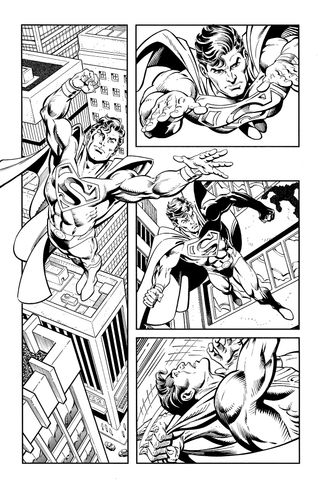
Also, the way it kind of specifically came together was Mike Carlin being the great editor he was. He would say, 'You can't just kill Superman for the sake of killing Superman. What's the story? What's the point?' And the point was, as we started to talk about it, a world with no Superman in it. That's when we all got involved and got passionate.
So that's when we reversed directions and went back to the beginning. We said, okay, 'how does he die?' That's when we started to put together the idea of doing a whole different obstacle so that it wouldn't be Lex Luthor which everybody might suspect or Brainiac. We actually had something new to bring to the story, a new threat that would evolve out from under the ground. And that was Doomsday.
Nrama: I see. Now, let's fast forward a bit to when Death of Superman was on the shelves. Obviously, it made huge waves in the comic world, but it also got a lot of media coverage outside comic fans. I mean, NPR was on this. CBS News was talking about it. What was that like for you?
Jurgens: None of that was anything we could have anticipated. When we decided to do this, we thought, yeah, we'll sell some extra copies. But we had no idea that what would happen would happen.
Almost every comic shop in the country had lines around the block trying to get this issue, as driven by news coverage. As you said, all the networks covered this; NPR did, like you said, but so did local stations. You know, the New York Times did it, the national papers did it, and as did the local newspapers. It was just everywhere. We never could have foreseen that.
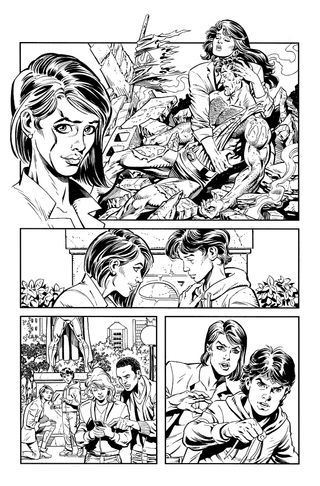
Every time something would happen, we were constantly getting on the phone with each other as a group. We'd say, 'Can you believe this? Did you hear about that? So and so just experienced this.'
It was absolutely phenomenal to see that happen, especially since, you know, some people were saying, 'Don't worry about it, he'll be back. Superman isn't really dead.' Something along those lines. But at that point, we had no plan whatsoever as to how Superman would come back. We had nothing. We had carried it through issue #77, where Superman is kind of flying off into the sunset. But no idea how he was going to come back.
Nrama: What do you say to those people that you mentioned? Who rolled their eyes at this and said he was going to come back, this is a stunt, whatever. What do you say to that?
Jurgens: I say the same thing today as I did then. What we were out to do was tell a really good Superman story. To this day, I believe we did that.
If you take Death of Superman, World Without a Superman, and Reign of the Supermen, and put it all together, you're talking about a couple of years' worth of really good, superhero, Superman, kick-ass comics. At the end of the day, we contributed something that, by example of our conversation, is still talked about thirty years later.
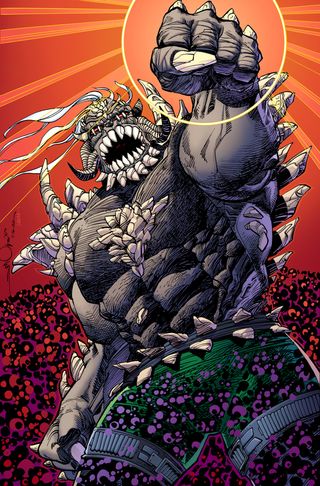
If anything, the point I continue to make is that we never got the critical due we had coming for the quality of story that it was overall. The whole idea was to make a definitive statement about Superman, take Superman out of the books and ask what happens to the rest of the DC Universe and the other characters in it. We managed to contribute something that has enhanced the legend of Superman. It has added to the tapestry of who Superman and the Superman family characters are. It has withstood that test of time.
Nrama: Great answer. Now, let's fast forward again. Ten years after Death of Superman, you returned to the events of the story for a series called Superman: Day of Doom, which was announced to be getting a reprint soon. Was the series your idea?
Jurgens: That originated out of a series of different discussions with folks at DC at that time. It wasn't that I went in and said, 'Hey, let's do a series called Day of Doom.' it was more along the lines of DC saying, 'We'd like you to do a Superman Project. We're kind of thinking of something that might relate now that we're at the ten-year point. That one was born from a very natural discussion between the editorial staff and me.
Nrama: What did you hope to do with it?
Jurgens: It's a little bit of how the general population reacted in that moment. We had a reporter involved and we saw his interpretation of those events. It's a way to take a different look at the story and how it played out.
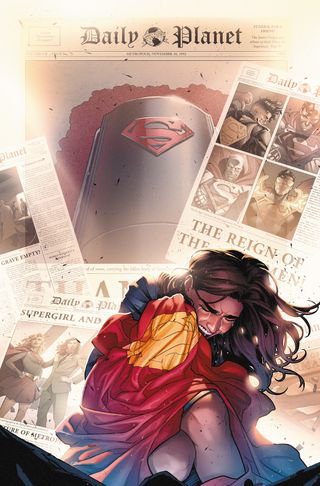
Nrama: Excellent. Alright, we're coming up on the thirtieth anniversary of the Death of Superman, and to mark the occasion, DC today announced the 30th Anniversary Death of Superman special, to which you are contributing. Are you hoping to create something similar to Day of Doom? A different look, as you said?
Jurgens: The way the special starts out is with Jon Kent, who is about nine years old in my story. Jon is in school one day, shortly after [Lois, Clark, and Jon] move back to Metropolis. The teacher says, 'I would like you all to meet this individual, who's going to come in and tell us about one of the most famous, if not the most famous, days in the history of Metropolis.' A young man steps up to say, 'I'm here to tell you about the day Superman died.' At which point, Jon Kent is sitting in the first row of the classroom and says, 'What?'
Clark and Lois never bothered to tell Jon about that; that's a very atypical scenario for parents. You've got a nine-year-old kid, what do we say about how dad died and came back from the dead? It's not a very typical conversation, so we'll save that until he is older. That's what gets us into the story. I think the fun part of this is seeing it play out through Jon's eyes, seeing how the adventure unfolds for him as he also learns about what happened so many years earlier.
There's also a place here to make a bit of a larger comment about what happened in those days thirty years ago. We have Louise Simonson and Jon Bogdanove doing a story, Jerry Ordway and Tom Grummett doing a story, as are Roger Stern and Butch Guice, that gets into some of their interpretations through the eyes of other characters of what happened during those times.
The fun part of the 30th anniversary special is that, for people who were there thirty years ago, this will bring back some fun memories. Some real fondness for comics of that era. For people who weren't there thirty years ago, who weren't there to see the lines around the stores and things like that, I think they'll enjoy this every bit as much. It's going to be a fun package. Like I said, we have the original creative teams back together to work on this.
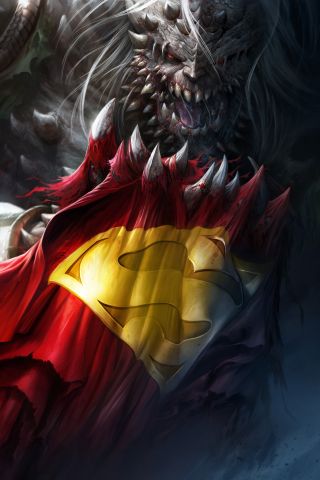
I also want to mention Brett Breeding, who is inking my story. This our first DC project together in, I think, twenty-five years or so. We also have a lot of fun pinups, there are going to be a lot of variant covers and things that touch on this celebration of what happened all those years ago. I also think the special will provide some new twists that people will really like.
Nrama: I'm certainly looking forward to checking it out. Wrapping up, Death of Superman is a comic book milestone. It has been adapted into animated films, a video game, it was even a central point in the DCEU. After thirty years and so many interpretations, how has the reading of the story changed for you?
Jurgens: The experience of it all continues to evolve because in a way, it's never ended. Yes, we did the story, but as you pointed out, whether it's video games or seeing Doomsday interpreted in animation or live action, on the movie screen, or on Smallville or Krypton, it's a continually evolving process which has been so interesting. And again, it's something we could never have foreseen. But seeing the level of influence it had then, and continues to have now, really is astonishing. And very very gratifying.
'The Death of Superman' altered comics forever, but it took some major cues from Todd McFarlane's 1990 launch of Spider-Man #1.

Grant DeArmitt is a NYC-based writer and editor who regularly contributes bylines to Newsarama. Grant is a horror aficionado, writing about the genre for Nightmare on Film Street, and has written features, reviews, and interviews for the likes of PanelxPanel and Monkeys Fighting Robots. Grant says he probably isn't a werewolf… but you can never be too careful.
Most Popular






